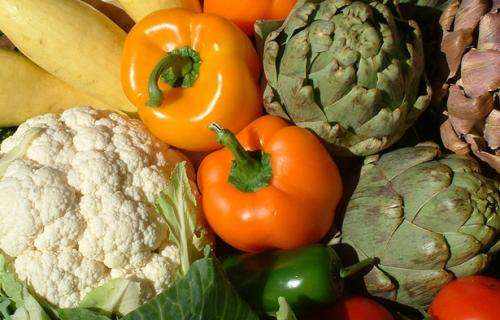What we know (and don't know) about vitamins, diet and health

Here's the short version: your kid probably doesn't need a daily vitamin, and there is no magic ingredient in food that will keep you healthy.
When I told folks that I was going to start writing a series of posts that addressed scientific questions about food, I was inundated with questions people wanted me to address. Among the most common questions were those that dealt with vitamins (are they important?) and "eat for health" diet plans (do they work?). So I decided to tackle those questions first.
One friend asked about the pros and cons of children getting their vitamins and minerals from one-a-day vitamins, instead of from food.
"There is no evidence that kids benefit from dietary supplements," says Sarah Ash, a professor of nutrition at NC State. "Even finicky eaters will get the nutrition they need in the long run, as long as you're presenting them with healthy options. If all a kid eats is junk, that's a different story. But if your kids eat nothing but strawberries for a few days, don't worry. Over time it averages out.
"Don't stress about it," Ash says. "You don't want to turn meal time into a battleground."
Most adults probably don't need dietary supplements either, though there are exceptions.
"For example, people over 50 or 60 would likely benefit from a vitamin B12 supplement," Ash says. "That's because as we get older, we tend to produce less stomach acid. And that acid is necessary to free the B12 from the proteins it's bound to in our food."
This leads to the second question I heard a lot: Regardless of whether we take dietary supplements, are there certain foods that can boost our immune systems or prevent chronic disease? Not really. The answer is complicated, because food itself is incredibly complex.
Studies that have evaluated the impact of individual dietary components – such as specific vitamins – have been largely disappointing, Ash says.
"But larger food patterns do sometimes seem to be linked to better health," Ash says, "such as the Mediterranean diet, which includes lots of monounsaturated fats (like olive oil, nuts and seeds), legumes (such as beans and lentils), seafood, some dairy, and smaller amounts of meats.
"However, we don't understand precisely what the formula is that leads to better health," Ash says. "We may never know, beyond the idea that variety and moderation are important."
In short, despite whatever the celebrity diet du jour may say, eating a well-balanced diet is still the way to go.















